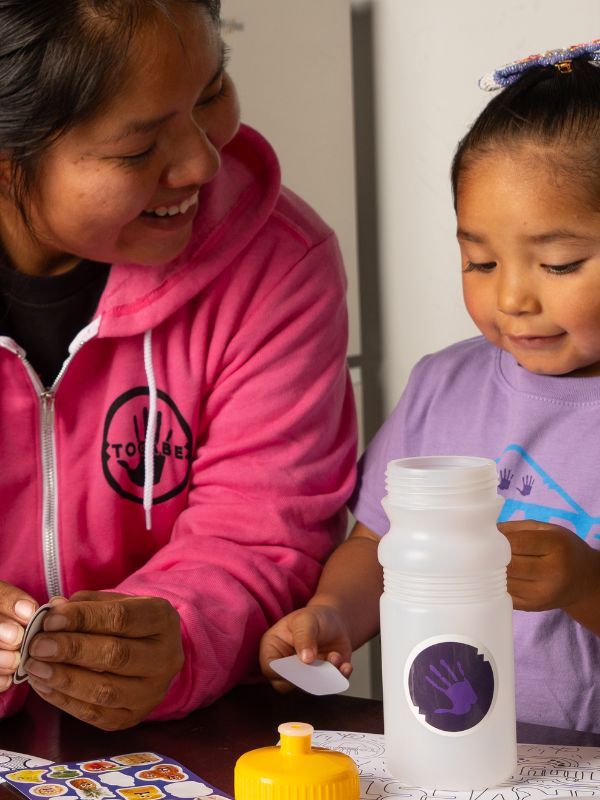
- Details
- By Kaili Berg
Tocabe Indigenous Marketplace, a Denver-based online grocer, is redefining Native cuisine and its role in contemporary food culture.
Co-founded 15 years ago by Ben Jacobs, a member of the Osage Nation, Tocabe allows customers to order Native-Ingredients and ready-made foods for delivery anywhere in the lower 48 states.
The business is in his blood. In 1989, Jacobs’ parents started Grayhorse American Indian Eatery in Denver; and in 2008, the family launched Tocabe, a restaurant serving modern Native American dishes like bison ribs, wild rice bowls, and fry bread tacos. Tocabe sources ingredients directly from Native producers, supporting Indigenous agriculture and showcasing authentic flavors.
“That was my foundation. When we launched Tocabe in 2008, we wanted to build on that legacy and create something current and modern that reflected where we are today with Native food,” Jacobs told Native News Online.
In 2021, Tacabe took its mission further by launching the Indigneous Marketplace, extending the restaurant’s mission by supporting Native farmers, ranchers, and food producers.
“The food system isn’t one person. It’s a web of people,” said Jacobs. “Producers do the hard work of growing the food, and our job is to help get it into people’s hands. It’s about building stability and preparing for the future.”
Products available through the marketplace include a diverse range of Native-sourced ingredients, such as wild rice from Red Lake, cornmeal from Navajo Pride, and honey from the Meskwaki Nation.
These ingredients are complemented by prepared Harvest Meals like the Bison Sonoran Bowl, which includes Indigenous ingredients such as squash puree and tepary beans.
“The Harvest Meals are about making Native foods accessible,” Jacobs said. “We want to combat the misconception that Native foods are difficult to prepare. By creating meals that are ready to eat, we provide a convenient way for people to enjoy and connect with these ingredients.”
As this Thanksgiving approaches, Tocabe offers an opportunity to rethink the holiday table by incorporating Native foods and traditions. Jacobs encourages families to explore Indigenous ingredients and dishes, like a Three Sisters salad or wild rice-based recipes.
“A lot of the foods people already serve on Thanksgiving, corn, beans, squash, have their origins in Native communities,” Jacobs said. “We hope people use this time to reflect on that connection and embrace Indigenous foods.”
Tocabe’s recent partnership with Winter Park Resort in Colorado adds to their commitment to sharing Indigenous food with a wider audience. Beginning with the 2024-2025 winter season, Tocabe will operate branded dining outposts on the mountain, offering dishes like bison chili and grain bowls.
“It’s more than just selling food,” Jacobs said. “It’s about representation and action. Winter Park is creating a platform to honor Indigenous heritage and share our story, not just through land acknowledgments but through meaningful partnerships.”
In addition, Tocabe is hoping to open a location at Denver International Airport in 2025, furthering its reach.
“This is another step in getting Native foods into people’s hands and creating a cyclical economy where the more we grow, the more we can support Native producers,” Jacobs said.
Jacobs envisions a future where Native foods are as commonplace in American households as spaghetti and meatballs.
“Someday, I hope people will be cooking Native-based meals at home and understanding their origins. When that happens, we’ve truly succeeded in rebuilding our food system,” Jacobs said.
In the meantime, Tocabe continues its work of making Native ingredients and meals accessible, thoughtful, and delicious.
“We just want people to have a wonderful food experience,” Jacobs said. “If they walk away saying, ‘That was amazing,’ and then learn about the story and people behind it, that’s the ultimate compliment. It’s not just about feeding people. It’s about telling stories, creating connections, and building a stronger future for Native communities.”
More Stories Like This
Native News Weekly (August 25, 2024): D.C. BriefsNavajo Nation Mourns the Passing of Former Vice President Rex Lee Jim
Deb Haaland Earns Endorsement From Communications Workers of America Local 7076
University Soccer Standout Leads by Example
Two Native Americans Named to Democratic Congressional Campaign Committee's“Red to Blue” Program
Help us defend tribal sovereignty.
At Native News Online, our mission is rooted in telling the stories that strengthen sovereignty and uplift Indigenous voices — not just at year’s end, but every single day.
Because of your generosity last year, we were able to keep our reporters on the ground in tribal communities, at national gatherings and in the halls of Congress — covering the issues that matter most to Indian Country: sovereignty, culture, education, health and economic opportunity.
That support sustained us through a tough year in 2025. Now, as we look to the year ahead, we need your help right now to ensure warrior journalism remains strong — reporting that defends tribal sovereignty, amplifies Native truth, and holds power accountable.
 The stakes couldn't be higher. Your support keeps Native voices heard, Native stories told and Native sovereignty defended.
The stakes couldn't be higher. Your support keeps Native voices heard, Native stories told and Native sovereignty defended.
Stand with Warrior Journalism today.
Levi Rickert (Potawatomi), Editor & Publisher


